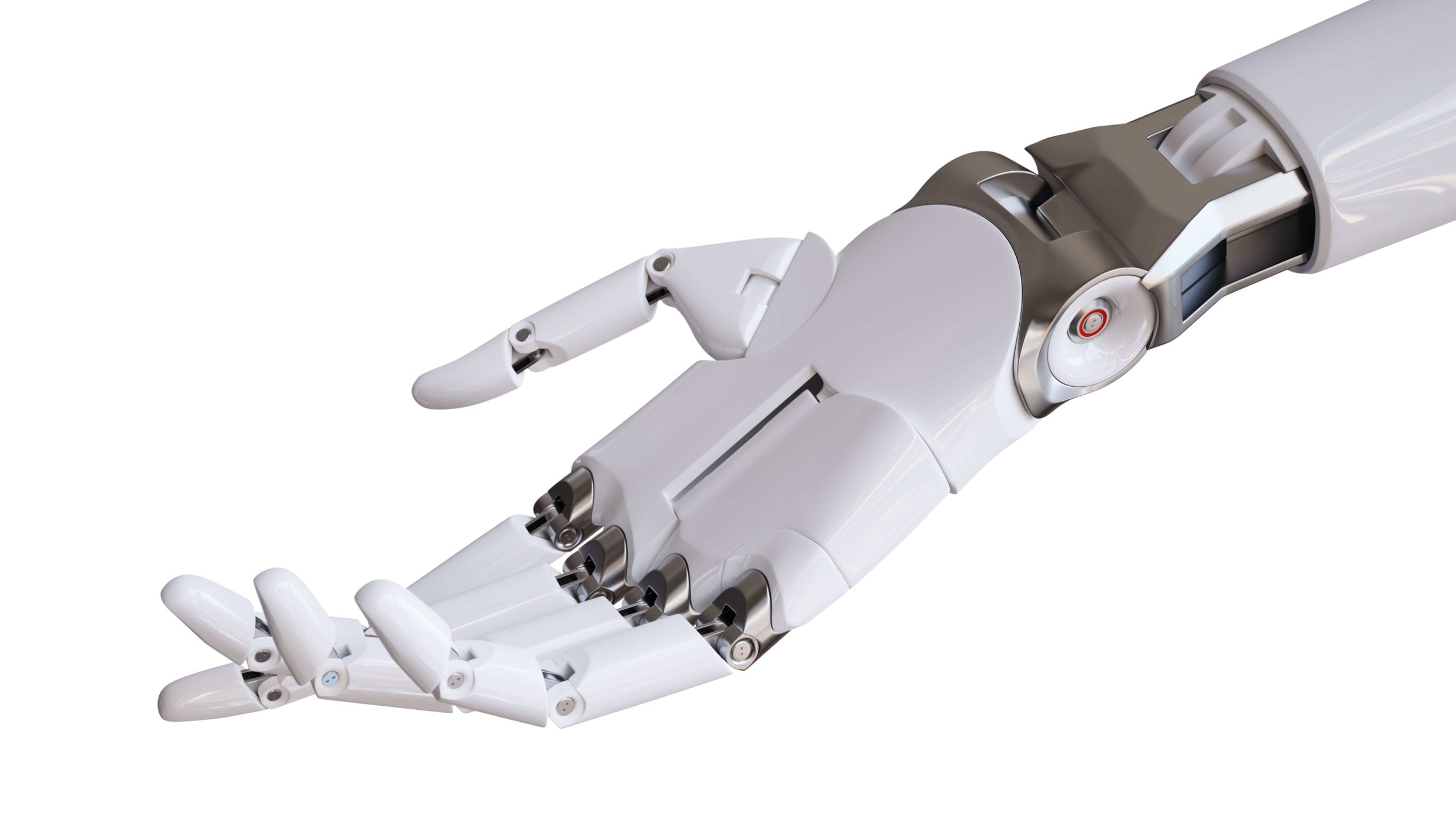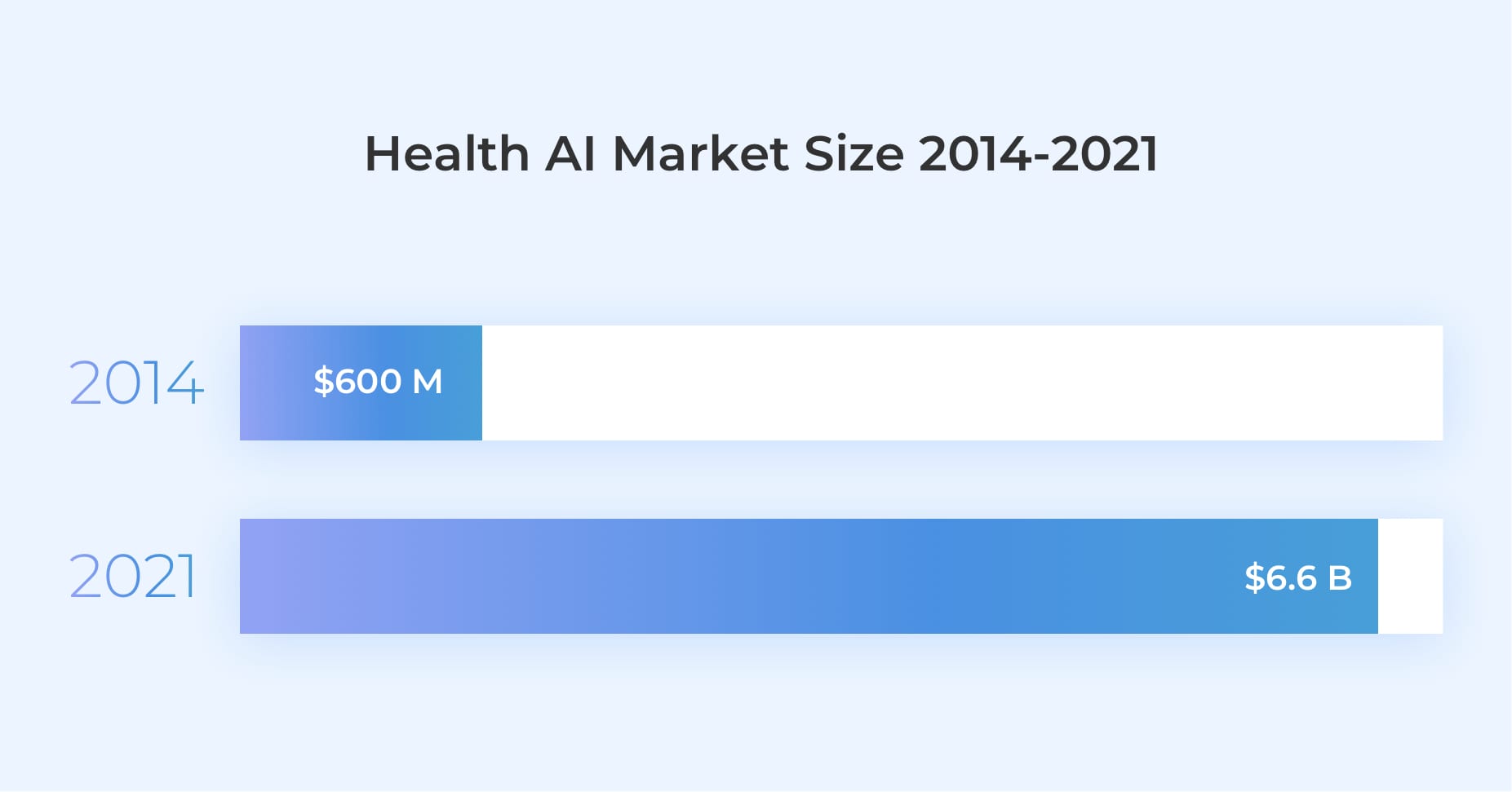Over the past several years, we have seen a wave of emerging technologies, from blockchain to artificial intelligence (AI), demonstrate significant potential to alter and disrupt multiple sectors, including healthcare.
We believe that, as technologies like AI are still early-stage and rapidly evolving, especially during COVID-19 times, the community has an important opportunity to ensure that technologies are effectively introduced and scaled.
In brief:
- AI is getting increasingly sophisticated at doing what the health-sector workforce does. But more efficiently, more quickly and at a lower cost.
- AI represents a significant opportunity for industry players to manage their bottom line in a new payment landscape while capitalizing on new growth potential.
- Those who seize the AI opportunity and embrace these applications to deliver high-quality, cost-effective care will be the ones to leapfrog competitors.
“We always overestimate the change that will occur in the next two years and underestimate the change that will occur in the next 10” — Bill Gates.
IT solutions for healthcare are one of the most successful stories of our times. The demand is driven by a combination of different factors such as pandemics, global population growth, and aging, climate changes, continually evolving patients’ needs, changing lifestyles, and the never-ending cycle of innovations.
The global healthcare system will need to shift to long-term care management and care-based approaches. It’s caused by population aging trends: by 2050, one in four people in Europe and North America will be over the age of 65. This means that the healthcare ecosystem will face complex needs and more expensive care.

Without radical digital transformational change, the healthcare system will lose its sustainability, and healthcare spending will simply not keep up. AI is getting increasingly sophisticated at doing what the health-sector workforce does. But more efficiently, more quickly and at a lower cost. According to the World Health Organization, by 2030, the global industry can create 40 million new jobs, and this is a huge potential for AI growth too.
Explosive Growth of AI
AI has the potential to revolutionize the healthcare sector and help address some of the challenges we consider in this article too. Today, there are at least six core areas where AI is already having an impact:
- Care delivery;
- Chronic care management;
- Self-care, prevention, wellness;
- Triage and diagnosis;
- Diagnostics;
- Clinical decision support.
These six areas have a direct impact on the healthcare value chain, including improving population health management, improving operations, and straightening innovation. With immense power to unleash improvements in cost, quality, and access, AI is gaining its momentum and becoming an extremely popular technology in the industry. By 2021, the AI health market is expected to reach $6.6 billion.
In just the next five years, the health AI market will grow more than 10x.

We can only imagine a future in which population-level data from wearables and implants change our understanding of human biology. Moreover, real-life digital treatment is already a new norm, shaping the long-term implication and healthcare approaches for many years to come.
The current spread of Covid-19 is the freshest example of this. The lockdown is stretching operational systems in healthcare and beyond. We have seen shortages of everything, from masks and gloves to ventilators, and from emergency room capacity to ICU beds to the speed and reliability of internet connectivity. Lots of patients tend to seek medical help online and through the device-based frames. We’re going to witness more examples in the foreseen future.
The Four Groups of AI Use Cases Today
To have a closer look at the high potential for scale, the impact, the possibilities, and the bottlenecks of AI use cases in healthcare, we grouped them in four logical categories:
- AI-enabled population health;
- Patient virtual health assistant;
- Frontline health worker (FHW) virtual health assistant;
- Physician clinical decision support tools.
The AI-enabled population health stands for analyzing and providing recommendations on residents’ health data. This includes surveillance and prediction, risk management, intervention targeting, and selection.

The second category, patient virtual health assistant, has the potential to assist people in directing their own care and wellness, including self-referral, data-driven diagnostics, care recommendations, behavior change, etc.
Considering FHW virtual health assistant, AI-facilitated care is probably one of the essential components here. It helps FHW to make data-driven decisions, track behavioral changes, set diagnosis, lead medical records, and personalize outreach.
The last group stands for providing more specialized expertise to generalist physicians. Image-based diagnosis, clinical decision support, QA, and training are just a few examples of its realization.
No More Science Fiction
AI represents a significant opportunity for industry players to manage their bottom line in a new payment landscape while capitalizing on new growth potential. The top three applications that represent the highest potential and near-term value are:
- Robot-assisted surgery ($40 billion);
- Virtual nursing assistants ($20 billion);
- Administrative assistance ($18 billion).
10 AI Applications With the Highest Potential in Healthcare
AI-Assisted Surgeries
Robot-assisted surgery can determine information from previous scientific documents and integrate it with real-time operating metrics to physically guide and enhance the physician’s instrument precision. The AI-assisted surgical procedure is also acknowledged as “minimally invasive surgery,” which minimizes chance elements with the aid of streamlining a subculture of innovation and entrepreneurship.
The recent advancements in AI have spurred healthcare carriers and pharmaceutical organizations to deploy the technological know-how and beautify their operations. The investments have yielded widespread fee cuts and extended outcomes. Robotics outcomes include a 21% reduction in length of stay. The value will only increase with the development of robotic solutions for a greater diversity of surgeries.
Boosting Nursing Efficiency
The virtual nursing assistant is another frontrunner of AI disruption in healthcare. No more hospital visits, or almost no more, because the AI solutions can remotely assess a person’s symptoms and deliver necessary alerts to doctors when medical care is needed.

As virtual nursing assistants become accustomed to patient diagnoses and conditions, their abilities will grow beyond effective triage into expertise and recommendations around patient treatment.
Saving Time and Reducing Administrative Errors
One of the most challenging aspects of the healthcare zone is the lack of time to adjust administrative support. AI systems have the potential to assist reduce time and effort for administrative workflow capabilities.
For example, voice-to-text transcription, eliminating non-patient care activities including writing chart notes, prescriptions and ordering tests. AI systems are developed to empower medical personnel to furnish a greater stage of care by helping them with compliance in every step of the process.
Better Care, On Your Terms
AI is here. From medical lookup to health center care, drug development, and insurance, statistics management by using AI functions radically changes the health sector to minimize expenditure and facilitate patient outcomes. And those who seize the AI opportunity and embrace these applications to deliver high-quality, cost-effective care will be the ones to leapfrog competitors.
But it’s a long and complex journey which no single organization should take alone. We, at Intellectsoft, empower companies and their workforces with transformational solutions and approaches to help them strive and succeed in constantly evolving normal. Are you and your organization looking for it?
Talk to our experts and find out more about the topic and how your business can start benefiting from it today!
